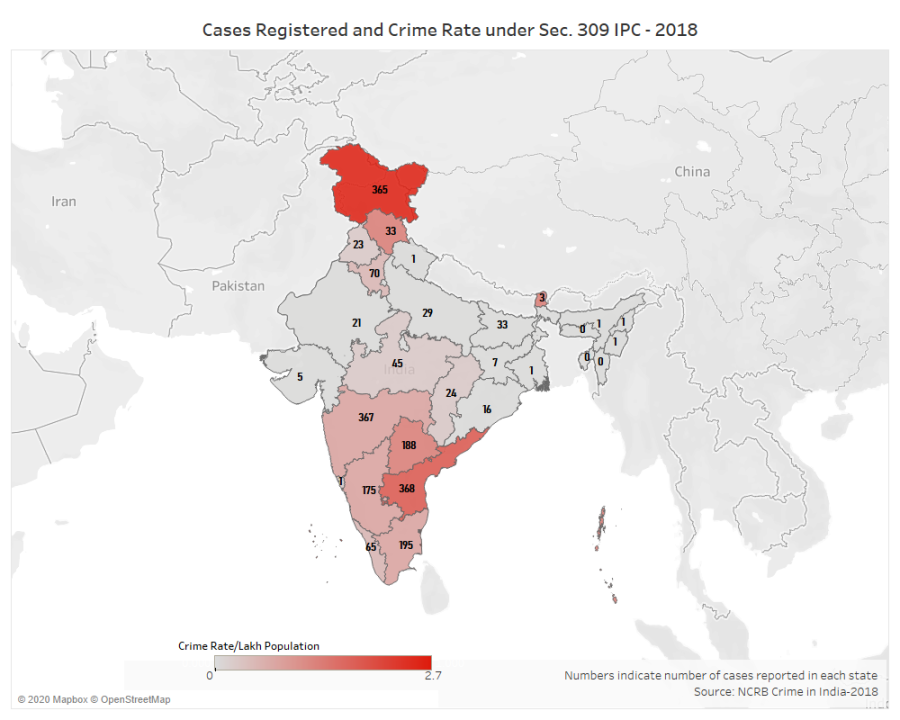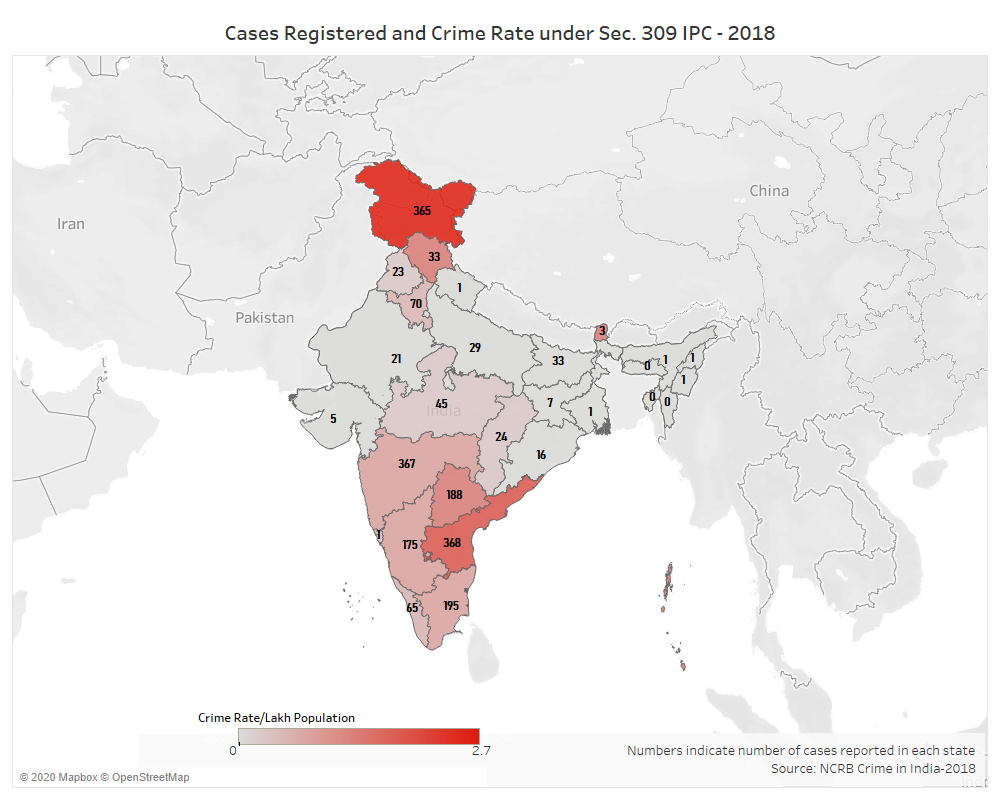After the unfortunate suicide of Actor Sushant Singh Rajput, there have been many news articles on suicides and mental health. Once such important article is from Indian Express, explaining the law behind suicides in India. This article is an extension to that explainer.
What does the law say?
- Section 309 IPC: A maximum of one year imprisonment ( sometimes with fine ) for those who attempts to commit a suicide.
One may wonder how can a law be so insensitive? How can the state add on to the misery of someone who thought living is painful? Answer lies in the history.
Like many other insensitive laws ( Section 377 that Criminalizes Homosexuality ), Section 309 is also a colonial legacy. Suicide was a crime in England until 1961 mostly for religious reasons, until good minds prevailed and they de-criminalized it. Since we Indians love anything foreign, we hung on to the law.
However, there is a law and order explanation for the continuation of Section 309. Often during protests, people use suicide as an expression of protest. Many political leaders try to take governments into ransom by threatening to suicide. In such extreme conditions, the police require a law to act. Section 309 serves that purpose.
In that case, how to protect people suffering from depression and mental-illness from Section 309?
To answer this, the Parliament has legislated the Mental Health Care Act in 2017 (MHA). According to MHA, any suicide shall be presumed to be due to stress, unless proved otherwise, and shall not be punishable.
So, suicide attempts due to mental illness will not be punished; suicide attempts due to political interests can be punished. The golden mean has been drawn. What else could be the problem?
Continued use of Section 309:

MHA came into force from July 2018 i.e for half of 2018. Yet, 2075 cases were reported all over India, higher than 1944 cases in 2017. Before you judge that the number is minuscule, there were 240 reported Acid Attack cases in 2018. If Deepika Padukone can make Chhapaak to show the grievance of Acid attack victims, I can probably write an article to show the grievance of Section 309 victims.
The issue is not that the cases are reported. In fact, most of the cases are dropped later on when senior police officers intervene. But the issue at stake is the life of a person. Let’s try to understand the medico-legal process of someone who tried to commit suicide and failed in the attempt.
- The person will be taken to the hospital by the family / good samaritans.
- The hospital administration, unaware of the Mental Health Awareness Act, treats the patient as a Medic-Legal case.
- The Medical Superintendent of the hospital is required to inform the police for the necessary proceedings and action.
- If the local police is aware of MHA, she would give a go ahead. But often that’s not the case.
- As a result of this process, the patient misses on the golden hour treatment, endangering her life.
That is why Munna Bhai M.B.B.S rightly asked, “form bharna jaroori hai kya?”
Often, there are events of extortion by hospitals and police. They may demand bribe from the aggrieved families to not initiate the above process.
Enough analysis, what are the solutions to this problem?
- Legal Awareness:
- Public consciousness is now directed towards mental health issues. Media and civil-society organizations should educate people about the Mental Health Act and other provisions, instead of crafting conspiracy stories and assassinating of Rhea Chakraborty’s character.
- If educating the entire public is hard, educate the hospitals and local police. The superior officers should ensure that the law enforcers know what law is. Is that a big expectation?
- Removing Section 309 IPC: Many Law Commissions Reports have recommended to remove the said section. But we already studied the law and order use-cases of Section 309. What can be done then? – answer lies in the above map.
- North-Eastern States, West Bengal etc., have not used Section 309 in 2018. What are these states doing differently to rein in those law and order associated problems with suicide? This should be investigated by the Ministry of Home Affairs at the center by coordinating with State police. The best-practices can then be passed as a model manual for other states to imbibe.
The agony of suicide is itself a painful one. Law should not add on to that.
